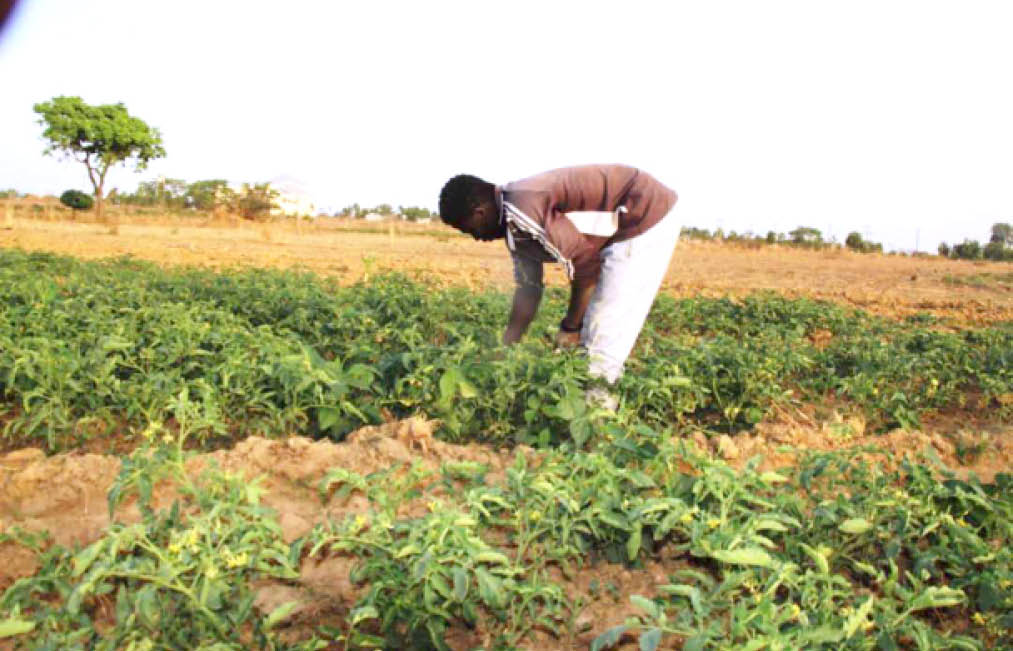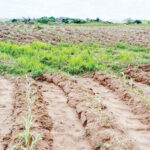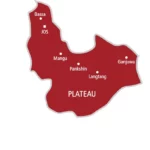Plateau State is one of the states in Nigeria where people engage hugely in irrigation vegetable farming, with farmers cultivating different crops in almost all the 17 local government areas of the state. The state has for the past decades explored dry season farming with the youth increasingly seen participating in agriculture.
However, irrigation farmers said their efforts to boost dry season farming and ensure self-employment are threatened by a lot of factors, forcing many of them to either cut down the size of their farms or abandon farming completely.
Many of the farmers are attributing the development to the high cost of farming inputs, financial constraints due to naira depreciation, and limited access to loans among others.
Samuel Azi, a small-scale farmer engaged in the cultivation of tomatoes, and cabbage in Jos East LGA of the state said they no longer nurse the hope of expanding crop cultivation due to the current economic situation in the country.
- Couple found dead in own apartment in Abuja
- NSCDC dismantles illegal oil bunkering site, impounds boats
Explaining further, Azi said, “Irrigation farming is presently encountering a lot of challenges as against last year.
“The first challenge is the high cost of fertilizer which has jumped from N28,000 to N48,000. This is discouraging us the small-scale farmers from expanding irrigation farming because we have to consider our capacity.
“Whatever size of farm you intend to do, if you don’t have the required resources to buy fertilizer and other inputs, it is useless. So, farming activities have been affected negatively and that is currently affecting the production of crops.
“Also currently, we are facing an outbreak of a strange insect disease on the farm that we cannot control. We find it difficult to determine which insecticides to apply to kill the pests.
“This is also a significant challenge that farmers in Jos East are battling with, and it could discourage them from either cultivating or expanding their production.
“We are also witnessing cobwebs appearing on the leaves of tomatoes, which subsequently affect both the leaves and the seeds, thereby impacting the entire tomato production in our area. This is also a significant challenge for us as farmers.
“When it comes to tomatoes, we are not doing well, but for crops like cabbage, and carrots, among others, we are doing good. The cost of maintaining tomatoes is very high compared to other crops like cabbage and carrots.
“The production of tomatoes has now become increasingly expensive compared to before. Significant investments are now required in the process, with a tendency that you may even not recoup your expenses. Before, a small investment could yield substantial returns.
“The government is also not helping the situation because we don’t have access to loans. If the government will support farmers by providing loans or grants, we would consider expanding the business. Due to the poor economic situation, we are only struggling to meet our basic needs and finding ways to invest more in the farm.
“Now, those who used to cultivate a hectare cannot do so due to financial constraints and the high cost of inputs. Otherwise, many people would have embraced irrigation farming,” he added.
For Dauda Sunday, another farmer, the story is the same, saying farmers are currently facing challenges that prevent them from expanding their business, with the situation deteriorating by the day.
Sunday also highlighted fuel prices, inadequate resources, and lack of access to loans and grants as major challenges for farmers in the state.
He said, “This year, irrigation in Barkin Ladi is very challenging. We don’t have adequate water to irrigate our farms, so we have to source water from far distances, which is very expensive. The high cost of fuel exacerbates the situation. As a small-scale farmer, I can’t expand my farm.
“The high cost of farm inputs, especially fertilizers and insecticides, is really affecting irrigation farming in our area because farmers are financially constrained and lack access to loans or grants that would enable them to expand or even maintain their farms.
“If we could access loans or grants, we wouldn’t have to move from one person to another seeking assistance for our farming. With the current crop prices in the market, if we had invested more in the business, we would have been more successful because the prices are favourable. Farming is now for wealthy individuals,” Sunday added.
Solomon Albert, who also engages in irrigation farming, expressed the difficulties they are facing compared to previous years. He explained that he had invested over N900,000 this year but couldn’t recoup his investment, let alone make a profit.
He said, “We cannot buy fertilizer and other farm inputs at subsidized rates. We can’t irrigate our farms with sufficient water like before due to the high cost of fuel. A farm that you are expected to irrigate four times, you can only afford to do it two times. This will not yield the expected results, and the government is not doing enough. Personally, I have not benefited from farming this year,” he explained.

 Join Daily Trust WhatsApp Community For Quick Access To News and Happenings Around You.
Join Daily Trust WhatsApp Community For Quick Access To News and Happenings Around You.

